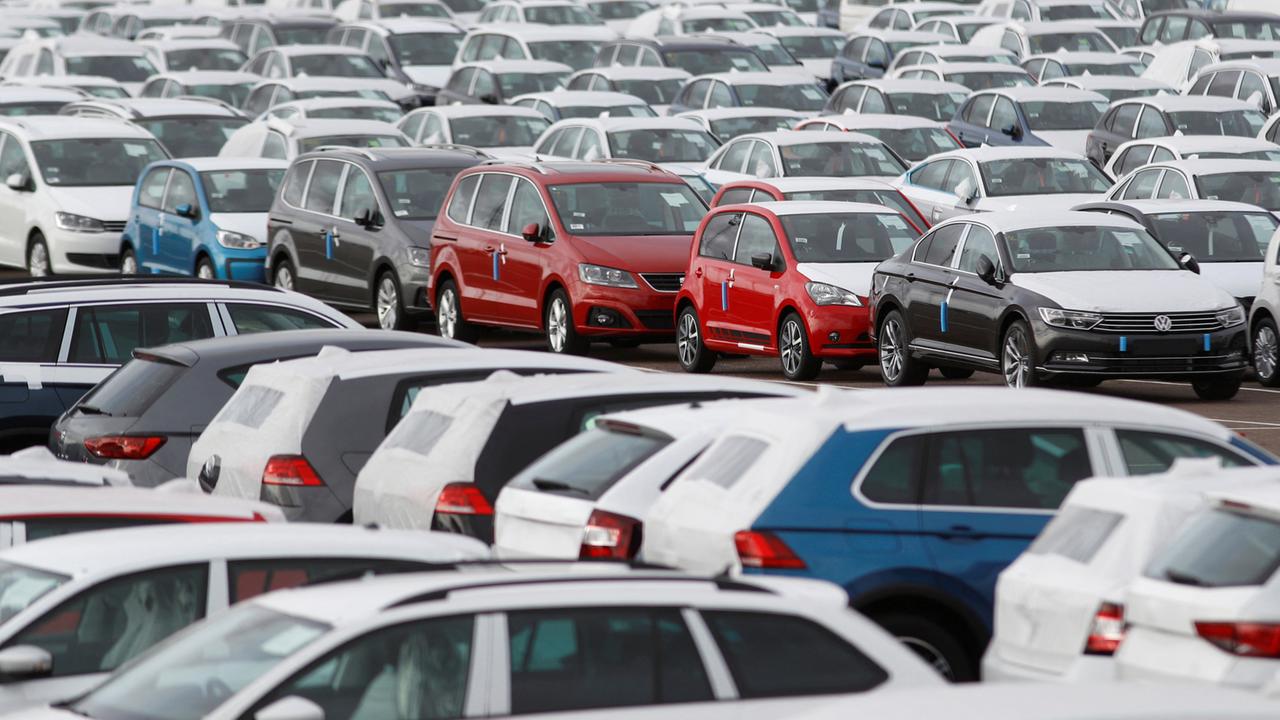CO2 limit values should apply to new cars in the European Union in the future. However, the EU Commission now gives car manufacturers more time to keep them. That should help the impressed industry.
The European Union wants to give car manufacturers more scope in order to comply with sharper exhaust gas limit values. The MEPs of the European Parliament in Strasbourg have approved the corresponding proposal of the EU Commission with a majority. Its President Ursula von der Leyen had announced two months ago that he wanted to give the companies more time in order to comply with the stricter CO2 fleet limit values applicable from this year.
New cars sold may not emit more than 93.6 grams of carbon dioxide per kilometer after the change occurs. It remains with this requirement, but the carmakers do not have to comply with as originally planned in the current year, but now get a period of three years. If manufacturers do not meet the limit values this year, they must be all the better in 2026 or 2027. You can avoid millions of fines for exceeding limit values in the current year by delivering more.
Law should come into force quickly
The Christian Democratic EPP parliamentary group in the EU Parliament speaks of a good signal for the European auto industry. The social democratic faction sees a necessary step in the interest of the employees who do not endanger climate protection. The Greens doubt that. They voted against the changes because, in their view, the delay is bad for the climate and the European auto industry. The EU ambassadors approved yesterday.
After the council of the member states has finally approved today's parliamentary resolution, the law is published in the EU AMSblatt and can come into force 20 days later. It should be quick to give the car manufacturers planning security.
Sales of e-cars weakened
The EU Parliament, Member States and Commission are responding to demands from manufacturers and suppliers not to also burden them with high fines in view of the already difficult business environment. Because the industry is in transition: Sales dropped last year on almost all major European auto stores. The sales of German manufacturers are also declining in China and the USA. Fabrics are not busy.
At the same time, industry is under pressure to meet climate protection requirements. To do this, the manufacturers have to sell more electric cars, but their sales are weakening. According to the European Manufacturer Association ACEA (European Automobile Manufacturer 'Association), its market share is 15 percent – and thus far away from the 25 percent mark, which is targeted by the end of the year. The European market for electric vehicles has not yet reached the decisive turning point for mass launch, it is said.
Hans-Joachim Vieweger, ARD Berlin, Tagesschau, January 31, 2024 5:43 p.m.
Sales have increased again since the beginning of the year
The association asks the member states to offer more purchase incentives and to better compensate for the programs. According to ACEA, the number of EU countries that do not offer such incentives at all increased from six last year to eight. Belgium with generous support when buying electric cars is the pioneer.
ACEA points out that the decision of the former federal government to abrupt the environmental bonus for electric cars at the end of 2023, which caused sales in Germany by almost a third. According to the Association of the Automotive Industry (VDA), the German sales figures have risen significantly since the beginning of the year.
Commission started action plan
EU Commission President of the Leyen made the future of the European automotive industry a chief of the chief and began a strategic dialogue with representatives from the industry at the beginning of the year. Because the auto industry is a key European industry with 13 million jobs among manufacturers and suppliers, which contributes seven percent to the European gross domestic product and is responsible for around a third of the non -public editions for research and development.
In an action plan, the Commission encourages the member states to develop state-supported leasing models for electric cars for low earners, as they already exist in France. The Commission also works on recommendations to increase the proportion of electric vehicles in corporate fleets. At the same time, she appeals to build more charging points. So far, seven out of ten charging stations have been in just three member states, namely the Netherlands, Germany and France.





